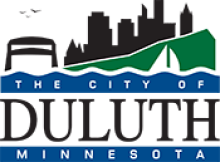Duluth, Minnesota Ponders A Major Bet On Open Access Fiber
Like countless U.S. communities, Duluth, Minnesota (pop. 86,000) got a crash course on the importance of affordable broadband during the Covid-19 crisis. Those struggles in telecommuting and home education helped fuel a dramatic new broadband expansion plan that, if approved by the city council, could revolutionize affordable access citywide.
Last April, the Duluth Economic Development Authority signed a $65,000 contract with Entrypoint LLC to examine the possibility of building a community-owned fiber network in Duluth. The result: a new Digital Access Master Plan that proposes the city spend $7-9 million to build a pilot open access fiber network in Lincoln Park next year.
“Reliable high-speed internet is no longer a luxury,” Duluth Mayor Emily Larson proclaimed in a recent state of the city address. “It’s an essential utility no less important to our future success than our roads, water, and electricity.”
A Pilot Project and Potentially More
Under the proposal, 75 percent of the new network would be buried fiber and 25 percent would be microtrenched along public roads. The $7 to $9 million estimated price tag is based on a 60% take rate, short-term interest at 5 percent, and a long-term interest rate of 3 percent for 20 years. The initial pilot project would bring fiber to an estimated 1,900 Duluth residents next year.
“A 60% take-rate may seem aggressive given the strong market position of the incumbent cable operator,” the plan states. “However, the survey data suggests a strong desire among residents and businesses in Duluth to see competition, choice, better pricing, and the reliability of a fiber optic network.”



